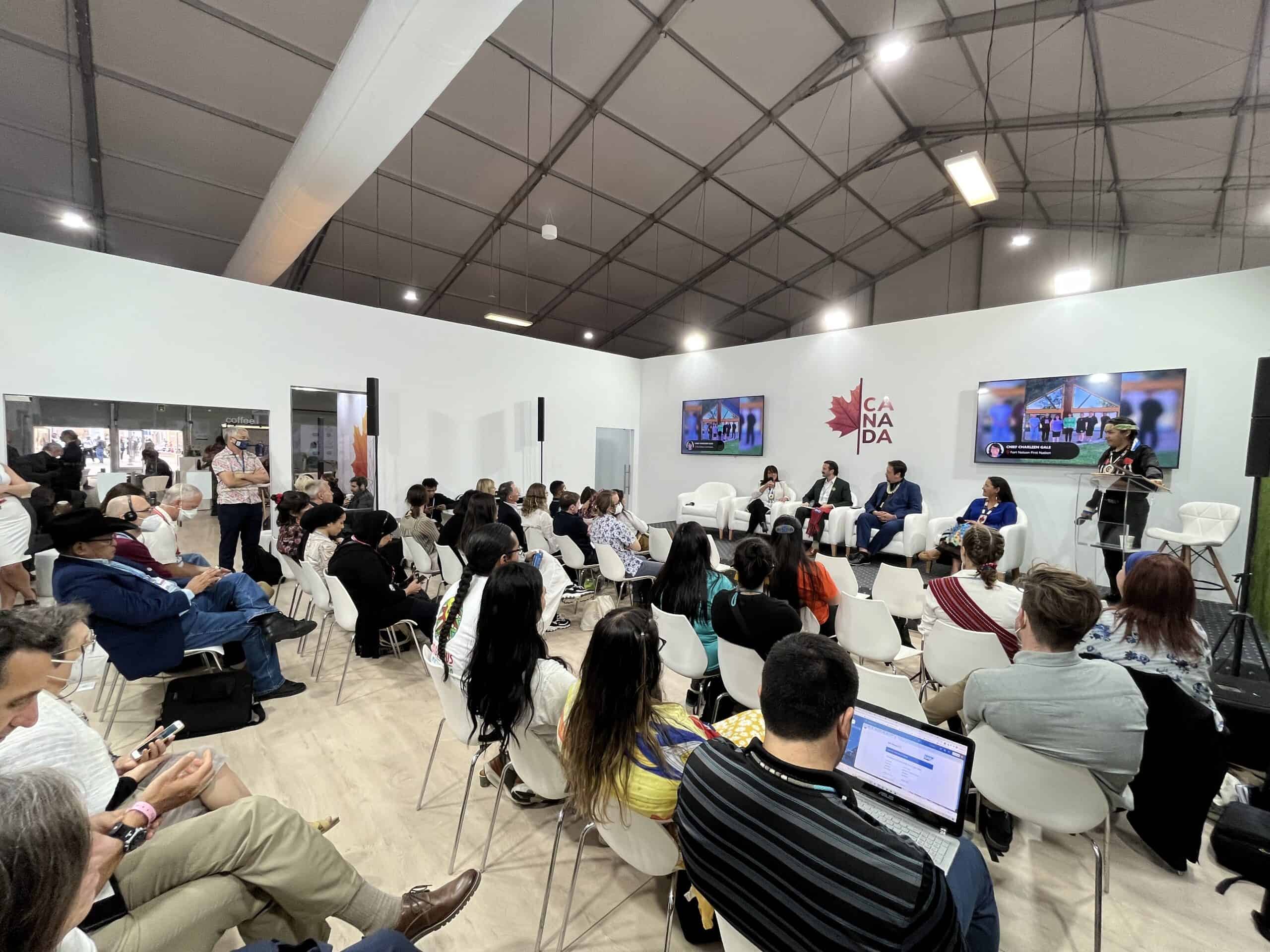Indigenous Clean Energy Social Enterprise (ICE) highlights Indigenous and community-led renewable energy projects as the future of climate action during COP27, the 2022 United Nations Climate Change Conference in Sharm El Sheikh, Egypt.
By Indigenous Clean Energy

SHARM EL SHEIKH, EG, Nov. 18, 2022 – The Indigenous Clean Energy (ICE) delegation wraps up its time at COP27 with an impactful event illustrating Indigenous and community avenues to sustainable energy futures. Chief Sharleen Gale, Daphne Kay, Mihskakwan James Harper, Dane De Souza and Blaine Chislett shared insights, traditional knowledge, and wide breadths of experiences about what it means to forge a trail for Indigenous clean energy projects locally, nationally and globally.
The delegation also held an Indigenous Clean Energy Connection event which brought together people from around the globe to share knowledge, experiences and build kinship. AJ Esquega, Aubrey-Anne Laliberte-Pewapisconias and Chris Henderson hosted the event sharing their personal stories and connections. They introduced the Kiashke Zaaging Anishinaabek and Inukjuak Indigenous community clean energy documentaries which illustrate the evolution that these nations have and continue to undergo to achieve sustainability and protect Mother Earth.
The story of energy in Canada has turned a new chapter. Indigenous nations are leading the clean energy transition as the second-largest clean energy asset owners in the country. This evolution of energy access and sovereignty is distinct and there are many pathways and learnings that can be adapted to support other Indigenous and marginalized communities around the world.
The Indigenous Clean Energy team brought forth many examples of systems created in a good way such as: collective community energy planning; fair partnership models; capacity-building by and for communities; more equitable policy adaptions; accessible funding programs; shifts in utility mechanisms and many other. The delegation made the following calls to action throughout the COP27:
- Respect, adhere and act on the United Nations Declaration on the Rights of Indigenous Peoples
- Indigenous knowledge and ways of being are sustainable climate action
- Ground all climate work in human rights and environmental protection and restoration
- Invest in communities rights and support mechanisms that lead their own energy futures
- Implement collective decision-making practices into processes and policies
- Create funding and capacity-building programs by and for the people they are intended to impact
- Create pathways for Indigenous communities to hold meaningful equity ownership in clean energy projects
Indigenous clean energy projects and capacity-building programs would not be possible without strong partnerships and support. Indigenous Clean Energy is grateful for ongoing partnerships with various departments of the Government of Canada in their commitments to supporting Indigenous climate leadership nationally and internationally. ICE appreciates the collaboration at COP27 with Natural Resources Canada, Crown-Indigenous Relations and Northern Affairs Canada, and Environment and Climate Change Canada.
Quotes
We look to our Indigenous kin from around the world – together we will provide each other strength, we will share our knowledge and we will continue to grow stronger nations everyday.”
Daphne Kay, Community Energy Specialist, Cowessess Ventures Ltd.
Educate the young people. Let them know they are strong. Let them know they are smart. Let them know they are wanted. They can do this. We can do this. We are Indigenous.
Blaine Chislett, Rankin Inlet
Across Canada, First Nations, Metis, and Inuit peoples are leading the way to a cleaner, more prosperous future. Advancing Indigenous-led clean energy projects not only provides communities with an important power source but also offers opportunities for skills training, clean economic growth, and the creation of sustainable jobs. They also provide new avenues for the advancement of impactful economic reconciliation. I am thrilled that Indigenous Clean Energy was able to highlight the leadership that Indigenous peoples have shown in the clean energy space while at COP27. I look forward to continued collaboration between the Government of Canada, First Nations, Metis, and Inuit communities as we all work towards an equitable and prosperous NetZero future.
The Honourable Jonathan Wilkinson, Minister of Natural Resources of Canada.
The Indigenous Clean Energy COP27 delegation have demonstrated to the world the leadership of Indigenous Peoples in taking action on climate change. They shared Traditional Knowledge and experiences on which we can draw as we move forward together to implement the calls to action and tackle the climate crisis.
The Honourable Dan Vandal, Minister of Northern Affairs.
Quick Facts
- COP stands for Conference of the Parties established by the UN (United Nations)
- COP1 took place in 1995 in Berlin. This year will be the 27th conference
- ICE’s ‘Global REMs Strategy’ session to be Canada's only official side event.
- Thousands of micro or small renewable energy systems are now in place with Indigenous leadership/partnerships.
- Medium-to-large Indigenous renewable energy projects have experienced a 29.6% growth rate across Canada since 2017
About Indigenous Clean Energy (ICE)
ICE is the leading platform in accelerating First Nations, Inuit, and Métis participation in clean energy projects in Canada from coast to coast to coast. ICE supports Indigenous Peoples to be clean energy change agents through capacity building, skills development, career training, and mentorship with high-quality and hands-on programming that is by, for and with community.
Media Contacts
Sydney Howard, ICE Communications Manager
Freddie Huppé Campbell, Global Hub Program Lead
